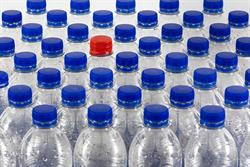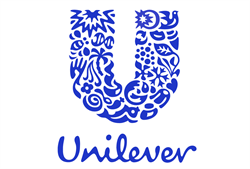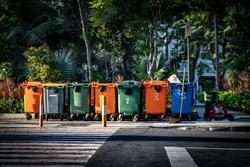CORPORATE ACTION: Colgate
BNEF Reveals Leaders And Slackers In Efforts To Transition To Circular Economy
 BloombergNEF’s 2022 Circular Economy Ranking lists the companies leading the transition to a circular economy, as well as those falling behind. Evaluated using their strategies and ambition to adopt a circular economy, the top 3 leading brand owners for the year are Colgate-Palmolive, Coca-Cola and Pepsi, while the top 3 plastic manufacturers are Borealis, Braskem, and Dow. Proctor & Gamble, Lotte Chemical, and Dow moved up in the ranking, while Unilever and LyondellBasell moved down in the ranking.[Image Credit: © Adam Novak from Pixabay]
BloombergNEF’s 2022 Circular Economy Ranking lists the companies leading the transition to a circular economy, as well as those falling behind. Evaluated using their strategies and ambition to adopt a circular economy, the top 3 leading brand owners for the year are Colgate-Palmolive, Coca-Cola and Pepsi, while the top 3 plastic manufacturers are Borealis, Braskem, and Dow. Proctor & Gamble, Lotte Chemical, and Dow moved up in the ranking, while Unilever and LyondellBasell moved down in the ranking.[Image Credit: © Adam Novak from Pixabay]
CORPORATE ACTION: Danone
Environmentalists Take Danone To Court For Alleged Excessive Plastic Use
 French food company Danone is being sued by environmental protection groups Surfrider, ClientEarth and Zero Waste France for failure to “sufficiently reduce its plastic footprint”. The lawsuit alleges that Danone has failed to comply with the provisions of France’s 2017 “duty of vigilance” law that requires large companies to monitor human rights and environmental concerns. Meanwhile, Danone said plastic pollution cannot be stopped by one company and it is supporting the United Nations’ push for a legally binding international treaty to deal with plastic pollution.[Image Credit: © Willfried Wende from Pixabay]
French food company Danone is being sued by environmental protection groups Surfrider, ClientEarth and Zero Waste France for failure to “sufficiently reduce its plastic footprint”. The lawsuit alleges that Danone has failed to comply with the provisions of France’s 2017 “duty of vigilance” law that requires large companies to monitor human rights and environmental concerns. Meanwhile, Danone said plastic pollution cannot be stopped by one company and it is supporting the United Nations’ push for a legally binding international treaty to deal with plastic pollution.[Image Credit: © Willfried Wende from Pixabay]
CORPORATE ACTION: Procter & Gamble
Procter & Gamble Patents Design For Fully Recyclable Pump Dispenser Without Disassembly
 Procter & Gamble came up with a design for pump dispenser that does not require disassembly to be recycled in existing recycling facilities. Unlike existing pump dispensers, the design developed by P&G does not include a steel spring. Steel springs make current pump dispensers difficult, if not impossible, to recycle by contemporary recycling streams. P&G researchers have developed two different pump dispenser designs and tested six different versions of the designs.[Image Credit: © Siva prasad from Pixabay]
Procter & Gamble came up with a design for pump dispenser that does not require disassembly to be recycled in existing recycling facilities. Unlike existing pump dispensers, the design developed by P&G does not include a steel spring. Steel springs make current pump dispensers difficult, if not impossible, to recycle by contemporary recycling streams. P&G researchers have developed two different pump dispenser designs and tested six different versions of the designs.[Image Credit: © Siva prasad from Pixabay]
CORPORATE ACTION: Unilever
HUL Partners With UNDP On Plastic Recycling Program With Community Waste-Pickers
 Hindustan Unilever Limited has joined forces with the United Nations Development Program to launch an Inclusive Circular Economy project. The project focuses on total management of plastic waste by pushing for separation of waste at source, collection of the segregated waste, and establishing Material Recovery Facilities for recycling plastic waste. Also, the project promotes the social inclusion of Safai Saathis, or waste-pickers, in India’s waste management sector. The project aims to integrate 20,000 waste-pickers in various parts of India, including Mumbai, Delhi, and Bengaluru.[Image Credit: © Unilever]
Hindustan Unilever Limited has joined forces with the United Nations Development Program to launch an Inclusive Circular Economy project. The project focuses on total management of plastic waste by pushing for separation of waste at source, collection of the segregated waste, and establishing Material Recovery Facilities for recycling plastic waste. Also, the project promotes the social inclusion of Safai Saathis, or waste-pickers, in India’s waste management sector. The project aims to integrate 20,000 waste-pickers in various parts of India, including Mumbai, Delhi, and Bengaluru.[Image Credit: © Unilever]
Unilever Executive Offers Tips On How To Do Sustainability Reporting Right
 Unilever’s Executive Vice President for Sustainable Business Performance and Reporting, Lysanne Gray, discussed her role and responsibilities as lead officer in charge of the company’s sustainability reporting. Gray said her company has recognized the importance of sustainability and highlighted her involvement in the company’s external reporting of its sustainability efforts. She also claimed that while financial reporting and sustainability reporting have similarities, many important differences must also be considered.[Image Credit: © Unilever]
Unilever’s Executive Vice President for Sustainable Business Performance and Reporting, Lysanne Gray, discussed her role and responsibilities as lead officer in charge of the company’s sustainability reporting. Gray said her company has recognized the importance of sustainability and highlighted her involvement in the company’s external reporting of its sustainability efforts. She also claimed that while financial reporting and sustainability reporting have similarities, many important differences must also be considered.[Image Credit: © Unilever]
Fund Manager Accuses Unilever Of Virtue Signalling

Fundsmith fund manager Terry Smith accused Unilever of virtue signalling with the company’s ethically focused marketing. Smith also accused the conglomerate of ignoring his investment fund’s advice calling on Unilever to improve its financial performance. Unilever has added Trian Partners co-founder and activist investor Nelson Peltz to its board of directors.[Image Credit: © Unilever]
CORPORATE ACTION: Other
Bormioli Luigi And Texen Make Sustainable Glass Packaging For Stella McCartney’s Skincare Line

Italian glassmaker Bormioli Luigi and French beauty packaging company Texen collaborated to create two fully redesigned refillable airless packaging options for Stella McCartney’s STELLA line of skincare products. The collaborators have designed the packaging to reduce the product’s environmental footprint by at least a third by adding up to 15 percent recycled content to the glass bottles and jars. In 2023, the brand plans to use Bormioli Luigi’s industrial solutions to increase recycled glass content to 40 percent.[Image Credit: © STELLA by Stella McCartney]
Coty Files Worldwide Patent For In-Store Fragrance Refilling Machine

Coty has filed a global patent for an in-store machine that blends products and refills used perfume containers. The machine’s transfer system enables the mixing of pre-selected amounts of fragrance concentrate, distilled water and organic compound ethanol. According to the company, the refilling system creates a fragrance with organoleptic properties similar to those of the original fragrance.[Image Credit: © Mimzy from Pixabay]
CAMPAIGNS, COMMITMENTS & NGOs
World Economic Forum’s Initiative Aims To Eliminate Plastic Waste
 The World Economic Forum is promoting reuse models and helping deal with the global problem of plastic pollution through its Consumers Beyond Waste initiative. The organization is working with environmentalists and industry partners to speed up the expansion of reuse models designed to eliminate plastic waste. The importance of the initiative is driven by facts, including that 50 percent of global plastic pollution is for single-use and only 14 percent of plastic packaging is recycled.[Image Credit: © SeaReeds from Pixabay]
The World Economic Forum is promoting reuse models and helping deal with the global problem of plastic pollution through its Consumers Beyond Waste initiative. The organization is working with environmentalists and industry partners to speed up the expansion of reuse models designed to eliminate plastic waste. The importance of the initiative is driven by facts, including that 50 percent of global plastic pollution is for single-use and only 14 percent of plastic packaging is recycled.[Image Credit: © SeaReeds from Pixabay]
Tide Ocean Works With Local Communities, Businesses To Stop Plastic Pollution
 Tide Ocean SA has launched the #tide ocean material®, a way of collecting and compounding ocean-bound plastic waste into a viable and high-end packaging material. According to the company, the finished product is also safe and durable. The company’s business model involves working closely with local communities in collecting plastic waste and paying fair wages. This ensures a steady source of raw materials and active participation of local communities. Tide Ocean also partners with similarly minded businesses, such as Seacliff Beauty.[Image Credit: © SeaCliff Beauty]
Tide Ocean SA has launched the #tide ocean material®, a way of collecting and compounding ocean-bound plastic waste into a viable and high-end packaging material. According to the company, the finished product is also safe and durable. The company’s business model involves working closely with local communities in collecting plastic waste and paying fair wages. This ensures a steady source of raw materials and active participation of local communities. Tide Ocean also partners with similarly minded businesses, such as Seacliff Beauty.[Image Credit: © SeaCliff Beauty]
ALLIANCES, PARTNERSHIPS & JVs
Leading International Sustainability Organizations Combine Resources To Fight Plastic Pollution
 The World Economic Forum’s Global Plastic Action Partnership, the Ellen MacArthur Foundation’s Plastics Initiative, and WRAP have announced a collaboration agreement aimed at pushing for international action on dealing with plastic pollution. The resulting network is aimed at promoting increased knowledge exchange among the partners and uniting their sustainability programs. The collaborators aim to play a leading role in the implementation of the proposed international Plastics Treaty being negotiated among UN member countries and expected to be adopted by mid-2025.[Image Credit: © WRAP]
The World Economic Forum’s Global Plastic Action Partnership, the Ellen MacArthur Foundation’s Plastics Initiative, and WRAP have announced a collaboration agreement aimed at pushing for international action on dealing with plastic pollution. The resulting network is aimed at promoting increased knowledge exchange among the partners and uniting their sustainability programs. The collaborators aim to play a leading role in the implementation of the proposed international Plastics Treaty being negotiated among UN member countries and expected to be adopted by mid-2025.[Image Credit: © WRAP]
POLICY, REGULATION & LEGAL
England Unveils Expanded Ban On Single-Use Plastic Packaging
 England has announced a ban on single-use plastics, including plastic packaging, such as plastic plates, trays, bowls, cutlery, and some types of polystyrene cups and food containers. The ban will be effective starting in October 2023 and will prohibit retailers and other businesses from selling single-use cutlery, approximately 2.7 billion items of which are used by consumers in the country. Some business and government leaders have expressed support for the ban, as well as 95 percent of people who responded to the Government’s consultation.[Image Credit: © Vinson Tan ( 楊 祖 武 ) from Pixabay]
England has announced a ban on single-use plastics, including plastic packaging, such as plastic plates, trays, bowls, cutlery, and some types of polystyrene cups and food containers. The ban will be effective starting in October 2023 and will prohibit retailers and other businesses from selling single-use cutlery, approximately 2.7 billion items of which are used by consumers in the country. Some business and government leaders have expressed support for the ban, as well as 95 percent of people who responded to the Government’s consultation.[Image Credit: © Vinson Tan ( 楊 祖 武 ) from Pixabay]
INNOVATION & TECHNOLOGY
Scientists Come Up With Alternatives To Plastic Packaging
 Scientists and researchers have developed packaging alternatives to plastic, including the following: Israel-based Tipa has developed compostable packaging for food products and apparel using patented technology and environment-friendly films and laminates; the UK’s MarinaTex is a 100% biodegradable plastic developed from fish waste; US-based Loliware’s SEA Technology seaweed pellets can replace plastic on a large scale; and Swedish designer Pontus Törnqvist has created a plastic alternative using potatoes.[Image Credit: © Loren Biser from Pixabay]
Scientists and researchers have developed packaging alternatives to plastic, including the following: Israel-based Tipa has developed compostable packaging for food products and apparel using patented technology and environment-friendly films and laminates; the UK’s MarinaTex is a 100% biodegradable plastic developed from fish waste; US-based Loliware’s SEA Technology seaweed pellets can replace plastic on a large scale; and Swedish designer Pontus Törnqvist has created a plastic alternative using potatoes.[Image Credit: © Loren Biser from Pixabay]
EMERGING IDEAS, THEMES & TRENDS
UK To Introduce Deposit Return Scheme For England, Wales, Northern Ireland In 2025
 In the UK, the Government plans to introduce a deposit return scheme for beverage containers in England, Wales and Northern Ireland in 2025. Developed in partnership with the industry, the DRS seeks to reduce by 85 percent the drinks containers that are discarded as litter by 2028 or three years after the program’s launch. According to the Department for Environment Food and Rural Affairs, small cash deposits placed on single-use drinks containers will encourage consumers to recycle them.[Image Credit: © Jeremy Smith from Pixabay]
In the UK, the Government plans to introduce a deposit return scheme for beverage containers in England, Wales and Northern Ireland in 2025. Developed in partnership with the industry, the DRS seeks to reduce by 85 percent the drinks containers that are discarded as litter by 2028 or three years after the program’s launch. According to the Department for Environment Food and Rural Affairs, small cash deposits placed on single-use drinks containers will encourage consumers to recycle them.[Image Credit: © Jeremy Smith from Pixabay]
Industry Experts Predict 2023 Trends In Sustainable Packaging
 Several trends in sustainable packaging are forecast to take place in 2023. First, adoption of paper-based packaging in consumer packaging will keep growing as more manufacturers and brands choose to remove plastic packaging. Second, manufacturers and brands will rein back efforts to promote compostable packaging as a sustainability measure. Also, Europe will continue to lead in government efforts to scrutinize brands’ sustainability claims and over-packaging.[Image Credit: © Niko Lienata from Pixabay]
Several trends in sustainable packaging are forecast to take place in 2023. First, adoption of paper-based packaging in consumer packaging will keep growing as more manufacturers and brands choose to remove plastic packaging. Second, manufacturers and brands will rein back efforts to promote compostable packaging as a sustainability measure. Also, Europe will continue to lead in government efforts to scrutinize brands’ sustainability claims and over-packaging.[Image Credit: © Niko Lienata from Pixabay]
A Plastic Planet Launches Online Platform To Promote Plastic-Free Design
 A Plastic Planet has launched the online platform PlasticFree.com to help designers and business leaders remove plastic and single-use packaging from the global economy by 2025. According to the global solutions group, the online design tool has been developed to enable the 160 million global creatives to “rethink packaging, textiles and products”. The group also said the online platform offers “in-depth reports on over 100 plastic-free alternatives”, and looks into solid formulations, permanent reusable packaging, and other system changes.[Image Credit: © Newsmatics Inc. dba EIN Presswire and PlasticFreeDotCom]
A Plastic Planet has launched the online platform PlasticFree.com to help designers and business leaders remove plastic and single-use packaging from the global economy by 2025. According to the global solutions group, the online design tool has been developed to enable the 160 million global creatives to “rethink packaging, textiles and products”. The group also said the online platform offers “in-depth reports on over 100 plastic-free alternatives”, and looks into solid formulations, permanent reusable packaging, and other system changes.[Image Credit: © Newsmatics Inc. dba EIN Presswire and PlasticFreeDotCom]
RESEARCH
Reusable Food Packaging’s Sustainability Depends On Number Of Times Used
 University of Michigan researchers have confirmed that the “number of times a reusable takeout container gets used is a key factor” affecting the packaging’s sustainability performance. Results of the study published online on January 5, 2023, in the Journal “Resources, Conservation & Recycling” also revealed that consumer behavior plays a significant role in determining how environment-friendly reusable food takeout packaging can be. Other findings include reusable containers “can break even” with single-use packaging after four to 13 uses, depending on what type of single-use packaging is used. The researchers used Live Zero Waste’s Ann Arbor Reduce, Reuse, Return program as base for their model.[Image Credit: © Alexander Fox | PlaNet Fox from Pixabay]
University of Michigan researchers have confirmed that the “number of times a reusable takeout container gets used is a key factor” affecting the packaging’s sustainability performance. Results of the study published online on January 5, 2023, in the Journal “Resources, Conservation & Recycling” also revealed that consumer behavior plays a significant role in determining how environment-friendly reusable food takeout packaging can be. Other findings include reusable containers “can break even” with single-use packaging after four to 13 uses, depending on what type of single-use packaging is used. The researchers used Live Zero Waste’s Ann Arbor Reduce, Reuse, Return program as base for their model.[Image Credit: © Alexander Fox | PlaNet Fox from Pixabay]
Copyright 2026 Business360, Inc.

